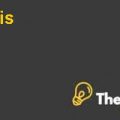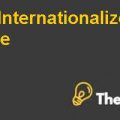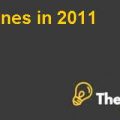
Introduction
ITC had began its operations in India as one of the tobacco companies in the year 1910 and the hotel business of ITC is one of the profitable business among the complete set of the corporate portfolios of the company. Later the name of the company was changed in the year 1974 to ITC Limited. There complete business portfolio of the company included the hotels, tobacco, paperboards, packaging, information technology, personal care, foods and agri-business for the company.
The corporate vision of the company had been laid on the foundations of its owners and the company’s vision emphasizes over corporate social responsibility, profitability, sustainability and social performance. The first sustainability report of the company was issued in the year 2004. ITC has been rated as the India’s most respected corporation by the Business World Survey conducted by the IMRB.
The first hotel of the company was opened in Chennai called as My Fortune in the year 1975. The logo of the company which was a sign of Namaste with hands folding sideways, the logo of the company transformed a mission of achieving corporate social responsibility and objectives for the people of India and it also conveyed the hospitality for the people of India. By the year 2012, the corporation had grown significantly, with around 4 brands, 100 hotels in different cities of India which were around 90 in total.
Problem Diagnosis
ITC hotels had attained a status of Responsible Luxury to India and ITC hotel is one of the first organizations in India that had introduced the concept of Responsible Luxury. Several processes oriented and structural designs had been implemented by the management of the company in order to achieve sustainability and formulate the vision of the company in the minds of the customers of the most responsible and the most luxurious hotel of India.
As a result of these efforts out of the total hotels of ITC, 8 of the hotels have been awarded as LEED which stands for leadership in energy and environmental design. These are the platinum ratings that are awarded to the most sustainable, social and responsible organizations that have proved through their operations that they are for their people. These ratings had made the company as one of the most luxurious and the greenest hotel chain in the world.
There were many issues and challenges that have been faced by the management of the company when the company was retrofitting the 8 existing properties of the company and also to launch ITC Gardenia. The case discusses the meeting between Nakul Anand, the executive director of the hotel chain and his team where the guidelines for achieving the platinum ratings are being discusses. All the members of the meeting had recognized that in order to achieve the LEED ratings, the company will not only have to meet the guidelines of LEED but also it will have to re-engineer the processes of the company, its operations and the structural designs.
Environmental concerns such as the waste management, energy conservation and the management of the water were the key issues that had to be addressed by the management of the company. Other challenges faced by the management of the company include the changes in the culture, revamping the vision of the people of the hotels and operational redesign. All of these would require significant costs. Given these challenges and issues recommendations need to be made that whether retrofitting of the existing properties need to be done or not.
Analysis
First of all, Swot Analysis has been performed to identify the areas of strengths, weaknesses, opportunities and threats of the company. The swot model is presented below.ITC Hotels Designing Responsible Luxury Case Solution
SWOT MODEL
Strengths
- The business of ITC has been positioned as a traditional business however; the management of the company has always focused on providing new brands to new segments of the company.
- The company has paid great importance to the human resource management. The chefs of the hotel chains are asked to develop their own food concepts and expand the FMCG business.
- ITC is the first hotel chain in India that has invested significantly in the conservation of all forms of energy.
- It is the first hotel to accommodate the model of responsible luxury for the people of India.
ITC has been diversified into a number of business segments such as hotels, paperboard, packaged food, cigarettes, greetings cards, information technology, personal cares, stationary, safety matches and agriculture.....................
This is just a sample partial case solution. Please place the order on the website to order your own originally done case solution.












